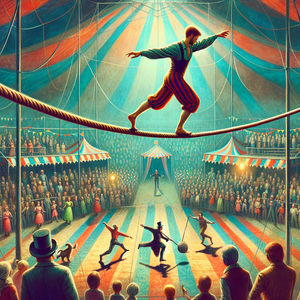The Rise of Influencer Culture and Its Impact on Fame

The rise of influencers marks a departure from a time when celebrity status was reserved for a select few who graced the silver screen or topped the charts. Today, influencers—individuals who gain prominence through social media platforms—have ascended to the forefront of fame. With the ability to connect directly with their audiences, influencers harness platforms like Instagram, TikTok, and YouTube to build substantial followings and establish personal brands. A prime example of this phenomenon is Charli D'Amelio, who skyrocketed to fame on TikTok through her dance videos. In just a few years, she garnered over 100 million followers, securing lucrative brand partnerships and even a reality show. D'Amelio's meteoric rise underscores how social media can thrust ordinary individuals into the limelight, often overnight, fundamentally altering the traditional pathways to celebrity status.
The Democratization of Fame
One of the most profound effects of influencer culture is the democratization of fame. Unlike traditional celebrities who often need a blend of talent, formal training, and industry access, social media has created a platform where anyone with charisma or creativity can achieve visibility. This shift has fostered a more diverse range of voices and styles in the public arena, allowing niche interests to thrive. The emergence of micro-influencers—individuals with smaller but highly engaged followings—exemplifies this trend. Brands are increasingly recognizing the power of these influencers to reach specific audiences, as authenticity often resonates more deeply than celebrity endorsements. For instance, a beauty brand might collaborate with a micro-influencer known for their honest product reviews, reaching a dedicated audience that trusts their opinion. This evolution challenges the notion that fame must be grand; it can also manifest in relatable, everyday forms.
The Challenges of Staying Relevant
Despite the opportunities presented by influencer culture, it is fraught with challenges. The digital environment is notoriously volatile, making it challenging for influencers to maintain their relevance. They must continuously adapt to evolving algorithms, shifting trends, and changing audience preferences to remain visible and engaging. For example, the shift in Instagram’s algorithm to prioritize video content has forced many influencers to pivot their strategies, often leading them to explore new formats like Reels or IGTV. This relentless demand for fresh and captivating content can lead to burnout, a concern increasingly voiced by content creators. The mental health implications of this constant pressure raise significant questions about the sustainability of influencer-driven fame and the toll it can take on individuals pursuing this path.
The Impact on Traditional Fame
The rise of influencers has also had notable repercussions for traditional celebrities. As the boundaries between traditional and digital fame blur, established stars are increasingly utilizing social media to connect with fans and promote their work. Celebrities like Dwayne "The Rock" Johnson and Selena Gomez have effectively leveraged their substantial social media followings to maintain their popularity, engage with audiences, and humanize their public personas. Moreover, influencer culture has shifted public expectations regarding celebrity behavior. Audiences now crave transparency and authenticity, often gravitating toward influencers who openly share their personal lives and struggles rather than those who adhere to a polished, distant image. This shift challenges long-standing notions of celebrity, which have traditionally relied on mystique and a curated public persona.
The rise of influencer culture has fundamentally altered the landscape of fame, making it more accessible and diverse while simultaneously presenting new challenges. As social media continues to evolve, the dynamics of fame are likely to undergo further transformations, blurring the lines between influencers and traditional celebrities. This change reflects broader societal shifts in how we define success, authenticity, and connection in the digital age.
Social Media Manager
Marketing agencies, e-commerce brands, media companies
Core Responsibilities
Develop and implement social media strategies to enhance brand visibility and engagement.
Create and curate compelling content that resonates with target audiences on platforms such as Instagram, TikTok, and Twitter.
Monitor social media channels for trends and audience feedback, adjusting strategies accordingly.
Required Skills
Proficiency in social media analytics tools (e.g., Hootsuite, Sprout Social) to measure engagement and effectiveness.
Strong writing and graphic design skills to create eye-catching posts.
Understanding of social media algorithms and best practices for content optimization.
Influencer Marketing Specialist
Consumer goods companies, beauty brands, lifestyle brands
Core Responsibilities
Identify and establish relationships with relevant influencers to promote brand campaigns.
Analyze influencer performance metrics to evaluate campaign effectiveness and ROI.
Collaborate with influencers to co-create authentic content that aligns with brand messaging.
Required Skills
Strong negotiation skills to secure partnerships and sponsorships.
Excellent understanding of various social media platforms and influencer demographics.
Ability to analyze data and derive insights to inform marketing strategies.
Content Creator
Media companies, digital marketing agencies, entertainment firms
Core Responsibilities
Produce engaging multimedia content (videos, blogs, podcasts) that aligns with brand identity and audience interests.
Stay updated on current trends and audience preferences to ensure relevant content production.
Collaborate with marketing teams to develop content calendars and campaign ideas.
Required Skills
Proficiency in video editing software (e.g., Adobe Premiere Pro, Final Cut Pro) and graphic design tools (e.g., Canva).
Strong storytelling skills and a creative mindset to produce captivating content.
Experience in SEO and keyword research for optimizing content visibility.
Brand Strategist
Advertising agencies, corporate marketing departments, consulting firms
Core Responsibilities
Develop comprehensive branding strategies that leverage influencer collaborations to enhance brand awareness.
Conduct market research to understand audience behaviors and preferences, guiding influencer selection.
Monitor and analyze brand perception and engagement metrics to inform strategy adjustments.
Required Skills
Strong analytical skills to interpret data and market trends effectively.
Excellent communication skills for presenting strategies to stakeholders.
Creative problem-solving abilities to develop unique branding initiatives.
Digital Marketing Analyst
E-commerce companies, digital marketing agencies, tech startups
Core Responsibilities
Analyze digital marketing campaigns, including influencer partnerships, to assess performance and effectiveness.
Utilize tools such as Google Analytics and social media insights to gather data on audience engagement and conversion rates.
Provide actionable recommendations based on data analysis to optimize future campaigns.
Required Skills
Strong quantitative skills with the ability to work with large datasets and statistical analysis.
Familiarity with digital marketing tools and platforms, including email marketing and PPC advertising.
Effective communication skills to present findings to non-technical stakeholders.


